Graduate students can participate in writing initiatives, professionalization workshops, and networking opportunities throughout their studies. Visit the "Professional and Skills Development" and "Writing Initiatives" webpages for information about departmental and SGS offerings. Our alumni, as featured on the "Where Are They Now" webpage, have gone on to a wide variety of careers nationally and internationally, ranging from tenured academics to museum curators, gallery directors, gallerists, art experts in leading auction houses, and to a variety of other occupations.
MA Program Completion
Congratulations! You've completed all coursework, language, and the Research Methods workshop requirements. The Graduate Administrator will inform you when you are eligible to graduate, in advance of the deadline each term.
| Session Requirements Completion | SGS Deadline | Convocation |
|---|---|---|
| Summer | mid-September | November |
| Fall | mid-January | March (in absentia, no ceremony) |
| Winter | mid-April | June |
PhD Program Completion (The Final Stretch)
Now it is three (perhaps four) years since your dissertation proposal. All research has been completed, and you have produced a manuscript. What's next?
Step 1 Supervisor and Committee Approvals
- Obtain final approval from your supervisor and send your dissertation to your committee.
- Collect feedback from committee members, revise and edit your dissertation, and obtain approval from your committee.
Producing Your Thesis
Refer to the SGS website for guidance on thesis formatting and electronic thesis submission instructions. You will be required to follow these formatting guidelines before submitting your thesis, so the sooner you start using them, the better.
Step 2 Examination Committee
The Supervisor and the Director of Graduate Studies (DGS) discuss potential external appraisers and the U of T "internal external" examiner. Generally, the supervisor sends the first note of inquiry to the potential appraiser, obtaining their interest and an up-to-date CV. The Graduate Office follows up by sending the appraiser's credentials to The Dean's Office for approval.
The Examination Committee consists of four to six voting members. The Committee includes:
- At least one member, but not more than three members, of the Candidate's supervisory committee.
- If your supervisory committee contains four members, please contact the Graduate Administrator to discuss options.
- At least two examiners who have not been closely involved in the supervision of the thesis:
- An external examiner, who is external to the University of Toronto.
- An "internal-external" examiner, who is internal to the University of Toronto. They may be inside or outside of the Department of Art History.
- A non-voting Chair appointed by SGS. SGS will appoint a member of the graduate faculty from outside of Art History to serve as Chair of the Examination Committee.
External Examiner
The external examiner must be a recognized expert on the subject of the dissertation and must be external to the University as well as its affiliated research institutes. Such an individual must be an associate or full professor at the home institution or, if the individual comes from outside the academic sector, must possess the qualifications to be appointed to an academic position at this level. The Department must deliver a copy of the thesis to the examiner eight weeks before the examination date. The examiner must submit their formal appraisal of the thesis to the Department at least two weeks before the examination date; if they do not, the examination may have to be rescheduled.
SGS has guidelines for the involvement of Indigenous Knowledge Keepers at final oral exams.
Step 3 Final Oral Examination (FOE)
Candidates must allow sufficient time for the process of arranging and scheduling a Final Oral Examination (FOE).
| FOE Date | Description |
|---|---|
| 3 months before |
|
| 8 weeks before |
|
| 2 weeks before |
|
The FOE is typically two hours long, but may go longer. The candidate has up to 20 minutes to summarise the research and conclusion of the thesis orally. The examiners will then take turns posing questions to the candidate. When there are no further questions, the candidate will be asked to leave the room while the examination committee members discuss and vote yes or no on the question of whether or not the thesis and its defense are acceptable. Committee members who find the dissertation acceptable must also indicate whether the dissertation is acceptable as is, or whether it requires editorial corrections or minor revisions.
| Dissertation Outcome | Description |
|---|---|
| Editorial corrections |
|
| Minor revisions |
|
Doctoral FOE Guidelines
The Final Oral Examination (FOE) is the capstone experience of your doctoral studies. Refer to the SGS guidelines that outline the responsibilities of the graduate unit, SGS, the Examination Committee, and the Chair of the Committee in the planning and conduct of a Final Oral Examination.
Step 4 Dissertation Submission and Convocation
- Immediately following the FOE, you will be informed of the outcome. If your thesis is not accepted 'as is', your supervisor will, within a day or so, give you a list of the changes you need to make.
- The length of time you have to make the changes depends on what the outcome of your FOE was - editorial corrections, or minor revisions.
- Once you have made the required corrections to the thesis, obtain approval from your supervisor (and any other faculty members who were designated as final reviewers at the end of the FOE).
- Follow the instructions sent to you by SGS regarding the electronic submission of your final thesis. Refer to the table below for submission deadlines for convocation.
| Final Dissertation Submission | Convocation |
|---|---|
| mid-September | November |
| mid-January | March (in absentia, no ceremony) |
| mid-April | June |
Questions?
Please refer to the FAQ page and/or contact the Graduate Administrator.






